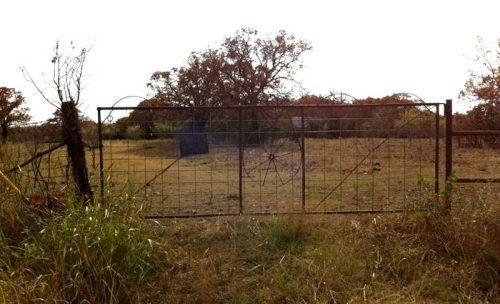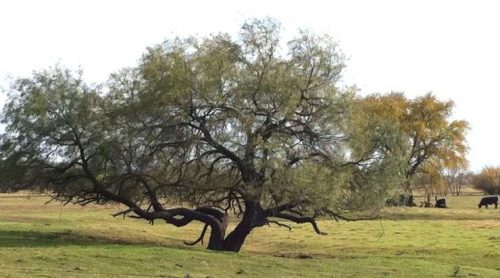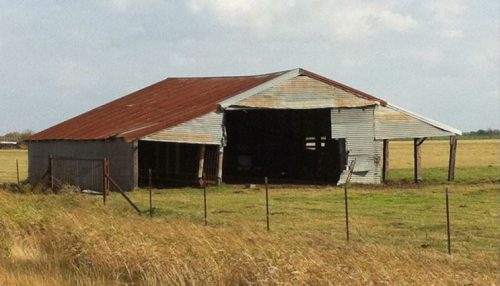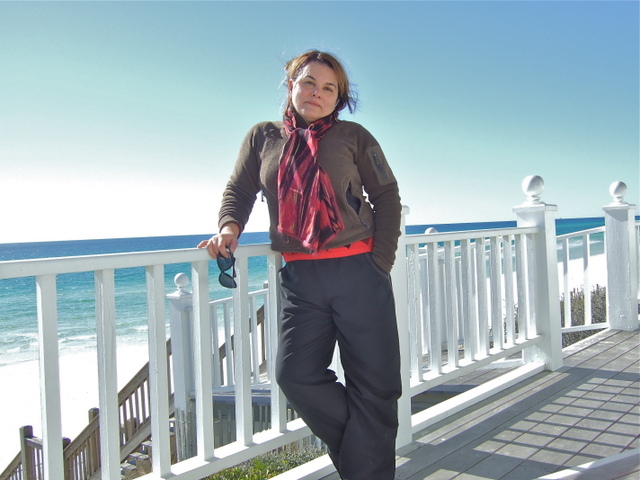
.
Y
ou remember once, when words were your only company, how it felt like treachery when writers wrote about their kids. You swore you never would. It was an easy vow, since you figured your books would be your babies. Your boys would be in books. Now you have babies, you have boys—but no books. O crazy carnival ride life: turning you here, depositing you there. Splitting open your heart, tying off your tongue. Could anywhere be the same as anywhere else?

Strangling on Trees
There are so many big trees on this island. Alder, Arbutus, Fir, Gary Oak, Pine, Spruce, Hemlock, Cedar, Yew, Maple, Dogwood: the light above your desk dims with each tree you type. Because nearly everyone who lives on this island is an environmentalist of some sort, it is considered a crime (worthy of, at the very least, several angry but carefully-composed rants against you in the editorial pages of the local paper) if you cut down a tree. Neighbors hear the chain-saw and come running in their gumboots. Even at 3 a.m. they hear it. Especially at 3 a.m. they hear it. Seeing the panicked fury on their faces, you decide to pretend that they are owls, swooping down to alert you to their nests of downy-white owlets perched in the branches above. Kindly apologize, while shivering in the shade that rotted tree casts.
You could argue that the giant slab of nature known as sky—the clouds the sun the stars the moon—are being neglected here, choked out by greenery. You never would. Somehow all this forested wilderness is inherent to being Canadian. And because you hide your American origin carefully, you also hide your tree-induced claustrophobia.
The Arbutus tree is your favorite. Muscular and red as any horse’s leg, twisting against sky with little adornment. When you go hiking your son likes to carry a piece of fragile red Arbutus bark in the pinch of his hand, which makes you think of love letters you left behind, in some other place you lived. He can only carry it a few steps this way before ripping it.
Because nobody cuts any trees or bushes back, when you pull up to an intersection you have to drive out into the road—into crashable territory, with your boys in the backseat—to determine whether it’s safe to pull out. You cringe and fight urges to close your eyes as you step on the pedal. You fantasize about coasting forward in a convertible, wielding a 30-foot -long bayonet.
You love the sun. You always thought you would live in the desert, as a hermit. You would take long walks on parched land in search of bones and flint, until your silhouette resembled barbed-wire.
When the wind blows wildly, limbs that normally nest snugly against the power-lines—because, again, it would be wrong to cut them—fall lightly, and everyone loses power. Your first son remembers with delight the Christmas Eve you each wore all your coats at once and melted pots of snow on the wood-stove to make drinking water. Admit it was very quiet, so quiet you could hear the snowflakes clicking as they landed. Remember the fun your son had scooping snow, the wonder on his face when he mistook the flickering candle’s reflection on the black windowpane for a sleigh scooting across the sky.
Still, when you go to a birthday party for a two-year-old who has begged for a logging cake—and the artistic mother has complied with hacked Cadbury Flakes for tree carcasses, with jagged silver gum wrappers folded into chain-saws—you laugh with delight and eat two pieces.

Other Lives: Sponsored by Water
Oh how you love to look across the water. The distance opens your mind. It’s as if someone skipped your brain across the sun-lit surface and every near-thought expanded into many full and amazing thoughts. Your island has, in addition to the ocean surrounding it, five large lakes. You spend large amounts of time at the edge of these waters, holding a baby, staring out. Once upon a time you were a long-distance swimmer. Your body twitches, remembering. You swallow. It’s cruel that freezing water can be so clean and turquoise. It’s cruel to feel land-locked on an island with so many empty boats and kayaks speckling the shores, begging (in little dips) for passengers.
During a limited stretch of hot summer days, you can bring the boys into the water with you. The older one wears water-wings; the younger lets himself be glided, emperor-style, in an inflatable boat. But you can’t go far. Your boys are anchors. You imagine one day they’ll take running leaps off the dock and stroke so fast away from you that you’ll have to stop and rest, treading water. You’ll look back to shore and remember wistfully how for years you trapped first one and then the other there, breast-feeding them on a blanket.
People live on boats in the harbours. From visiting 25-foot luxury yachts to old wooden planks with torn roofs, rotting into the ocean. Kids from the outer islands take a boat called The Scholarship to and from your island’s high school. No school bus for them. No chipper morning kid bombarding you with chatter, nope, not over the boat engine. Don’t forget your life jacket, honey! Calls your mother at the door. And at the dinner table you lift your fork and say: Today on the way to school? We almost hit a seal.
Your favorite boat isn’t technically a boat. You have to hike through hoards of trees to look out at it. You bring binoculars, and peer at the deck for signs of life. You never see any signs of life, which enables you to invent all sorts of stories about who lives there. Usually who lives on it is an 8 year-old girl named Delany who is crazy about the color orange. She is quite civilized for an orphan, and brushes her teeth three times a day. She made her toothbrush herself, out of driftwood and dog hair. People–all the people from all the places she might live but won’t—gather and they call out from the shore: Dellannnyyy! Delllannnyyyy! Come on home now! But she just keeps moving her eyes or her hand over the page and doesn’t hear.

Drop Me Right Here
Hitch-hikers on this island get rides. And then you will read something in the paper like this: To the hitch-hiker I picked up last Tuesday morning at Cranberry, headed to Fulford: you left your green metallic travel mug in my car. Call 653-8003 and I can return it to you. Nice drivers. Nice passengers, too. One of your friends claims a hitch-hiker left her a whole bar of organic dark chocolate in the seat. On purpose? You ask. I pretend yes, she says. She sighs and adds that ever since then she always gives her car-seat a careful scrutiny when the hitch-hiker steps out. Those damn hitch-hikers, she says. They make me crave chocolate.
(She is a friend from the prairies. You find the people from the prairies speak their mind more, with less polite wording, than the people from British Columbia. Because they have fewer trees to hide behind? Someday you will visit the prairies and see if it is like Texas, where you also lived. You hope it will be like Texas, but with less litter and animal corpses.)
You pick up hitch-hikers, too, if you’re not running late and your baby isn’t wailing in the back-seat. If Bob Dylan is playing on the car radio. You don’t stop for the crazy looking ones, the ones who probably need rides most. Usually you pick up females, who as the stats show are less likely to rape a driver or her babies.
Sometimes a hitch-hiker will shine with excitement, making you wistful for the days you were alone, travelling light and without an itinerary. Sometimes a hitch-hiker will be fatigued and full of shadows. When you drop her off your two boys, in the rear-view mirror, are coated with rings of light like in smultzy paintings of Jesus and you can barely breathe, hit smack in the throat with your huge luck.
Mama? Your son sang to you from the backseat, when he was Two, Do hitch-hikers have Mamas?

Animals That Aren’t That One
You had seen this landscape before you ever came to Canada, all swirling greens and greys and blues, peeping shards of sky, in the paintings by Emily Carr. Even her sweeping curves prepared you, for Salt Spring Island is full of hills and steep winding roads and therefore when you and your sons try to re-create your island in the bathtub you can’t just splay a floating bath-book out flat and call it done. You have to pile it up quite high with tipped plastic boats and cups and wash rags curled into hills. If you run here you will get faster. After eight months pushing your baby up and down hills in a stroller you will dash through a marathon in pouring rain to qualify for the Boston Marathon. Boston, you will murmur dreamily—until you double-check the atlas and see it, across that deceivingly-flat page, all the way over there. Unfathomable.
The first time you land in Canada and step out of the Vancouver airport you can’t believe the air. So cool and clean: you keep huffing it until someone asks if you are alright. If this is air, then what was that you had thought was air, back in those other places you’d lived? It must have been exhaust.
Geese dapple the fields, private and public. They dapple until you are right upon them—then they loom. Then they explode into the sky. Chasing a field of geese is well worth the mess it collects on the bottom of your shoes. When your first son is up and running, you waver between teaching him to ignite a whole field of geese with his wobbly body, and teaching him not to bother them. You do a bit of both.
You love the geese, and the deer: the deer that lurk all day and night outside the gate of your fence, waiting for you to swing it open, as plotting and stubborn as any deer in Gary Larson cartoons. They eat the apple-starts off the apple trees. They stomp across your tomatoes to get to the lettuce. When your son and husband rush out in their gum boots to corral the deer out the gate—the boy shrieking with delight, the man booming out the game plan, you stand at the back door laughing. No matter what they are wearing, you see them streaking across the yard in overalls and Daniel Boone caps. The sight is worth accidentally leaving the gate open. It is worth a ruined garden.
You love the geese and the deer for what they are not. They are not the animals that used to prowl the place where you lived before this, way up north. They are not bears, they are not mountain lions. They are not the grizzly bear that you surprised, that surprised you: it rose up on its hind legs and swatted at you, roaring. The roar echoed across the air; it would echo in your head for weeks. The grizzly mock-charged, its claws narrowly missing your face. But there is nothing mock about a charge. You put up your hands in surrender. I’m sorry, you half-spoke, half-whined: pathetic last words. You found it was impossible not to look into the eyes of the thing that is going to kill you. They were very dark, and flashing like the eyes of someone trying not to cry. You got away. One of you got away, and the other one of you will always be a mauled corpse on the side of a dirt road.
You’re told that sometimes a bear will swim across the ocean and land on this island. On ferry boat rides you scan the water not for orcas or dolphins, but for a massive hump of slick brown fur, straining furiously toward you.

Lots of Space to Generalize
The people here. To generalize, which of course any sentence must that begins, The people here. The people here…are industrious. Here are some of the things these islanders offer for sale, on the 15 minute drive to your son’s preschool: pottery, flowers, jam, vegetables, organic beef, eggs, kindling, monster dolls, honey, portable sawmill (for hire), knit leggings, birdhouses, baked goods, venison. You also pass two wineries, three (of many) art galleries, and the workshop of a shipwright.
You can sell whatever you make, too, right outside your house. But first you have to be industrious enough to construct a little wooden farm-stand.
The people here. They…..are polite and mild. Formal. Respectful of space.
In many ways this is a relief. You are a secretive Scorpio spy who has always associated being seen with diminished seeing powers. Also you have some social anxiety, otherwise known as: can’t we just communicate on paper? You’ve been known to slide into a closet when someone knocks on the door. When the phone rings, you step away from it. If you are returning from a run and see a visiting car in the driveway, even if you know the car and like its owners, your first impulse (and the one you usually take) is to keep running. So it’s a relief being here, where people give you a lot of room to hide.
On the down side, you can feel brash and snoopy, when you are merely being direct. When you feel brash and snoopy, you feel like a parody of an American. You can feel lonely at a party. Specifically, you can feel lonely for bars in places like Bandera, Texas, where heated discussions (possibly escalating into full-out pistol duels), made for wonderful entertainment and quick friendships. You can feel lonely for insistent, engaging types. Like the New Orleans musician on the corner of Iberville and Decatur who would call out to you on your way to work: Those new shoes you sportin’, aren’t they? Why you lookin’ so glum now, with this sun lovin’ on you? You best hustle, girl, you late today! You smiled at him, even when he drove you crazy–and now, when for long stretches polite islanders fail to call you out (too loud) or ask about you (too nosy), you are glad you smiled. Some people just flipped him the bird.
A woman you meet briefly tells you about a friend from the United States who was visiting her in Vancouver. He had recently been in a car accident, and his face had a fresh and gruesome scar right down one side of it. She introduced her friend to all her friends. They went to several dinner parties. And no one! She roars. Not one person asked him about his face!
You giggle. How rude, you say.
But. The people here….are kind. And smart. Respectful. And wanting to do good. And industrious. You feel lucky to be raising kids among people with these qualities. The flamboyant brashness–that can be introduced easily enough in so many places. By the television set, for instance. This other, the quiet space people create here, is so much harder to come by.
.
Things you do to fit
When you hear the temperature, you double it in your head and add thirty. You say pro-ject, not pra-ject. You write labour and colour and metre. You sing out “Zed” with your son during the alphabet song, even though it makes the verse not rhyme.
You say, Now where did I put my toque? without cracking a smile.
When you go to an outdoor festival in the heat of summer you don’t smirk at the little roped-off area you have to be inside of, to drink a beer. And babies aren’t allowed: they might grow up to be drinkers. You won’t smirk nor will you cry, thinking of those years you prowled the French Quarter with one hand curled around a go-cup.
In September, you add little tin wheels on the biggest zucchini from your garden so your son can enter the zucchini races at Fall Fair. At Salt Spring Fall Fair, for 20 dollars, you can enter “Muffin Madness” by betting on a tiny plot of numbered field. If the amply-fed-with-special-grain cow they release into the field decides to let his fresh poop drop on your number, you win the entire profit of the ticket sales. It’s quite a lot. People clench the fence nervously, willing an uncomfortable and oblivious animal to step right or left, to step forward or back.
In October, you take off your shoes and stomp with tons of other barefoot people–all various levels of clean—in a vat of grapes. For a long while after this you refrain from buying local wine. You make your Mom’s oyster dressing for Canadian Thanksgiving and wait for her or your sisters to call, so you can brag how you got to eat yours a month early. But no one calls; none of your people in the U.S.A. ever remember the mid-October day that is Canadian Thanksgiving.
In November, you wear a poppy on your shirt and ignore the election disputes that waif in vaguely from your computer. But you always watch nervously as the results of the Giller Prize—Canada’s big literary award–are announced on T.V. You rasp Shhhh! to your boys as the finalists, each one in turn, approach the podium to read excerpts from their books. You laugh a lot because of the amazing public fanfare made over books, and because writers make such lousy rock stars. When the lights hit their made-up faces, they twitch like moles caught naked and quivering outside their holes. The book you like best is seldom picked. Each year you wish you’d planned a party around the prize, with big money bets and impromptu readings and literary drinking games at the commercial breaks. But it is on in the morning, when all the writers you don’t know are writing.
In December, you watch as a large crowd of people huddled around a television set refuse to return to their vehicles and board the ferry headed for Swartz Bay. It has come down to shoot-outs in the Olympic Canada versus U.S.A. hockey match. Who you cheering for, Mama? Your son asks, over the excited commentary on the car radio. Uh, you say, suddenly exhausted. Does being an expatriate, straddling two homelands, automatically sap a person of the energy to cheer for either of them? Or is it just you? A disgruntled ferry worker begins waving cars forward and back, directing the intricate maneuvering required to drive around the abandoned vehicles. It is the last ferry of the night, but the crowd in there—black figures postured tensely in the yellow windows—would rather be without their beds than leave the game. Canadians, you finally say. Your husband winces, so that you have to quickly tell him you don’t mean the Montreal Canadiens. I mean those Canadians, you say, pointing to the empty cars as he rolls the truck forward.
In winter, it rains for weeks on end. This is good. If it snows, the very few plows your island has will focus on the main roads and neglect the hilly side streets. It rains, or it snows—it rains and it snows, the snow turns to rain again. The rain freezes. One night over whiskey, while your husband talks dreamily about his time in Belize, you try to remember your own hot seaside places. They are faded poloraids, buried under leaves and limbs. You tilt your face up at the snow-buried skylight, straining to recall. How can your body forget that kind of heat? A heat so stark it instantaneously dried the ocean droplets on your skin to lines of lace.
In winter, you take a hot bath with your boys.
 But before that—twice, in fact—you decide it will be fine to give birth without drugs—since there is no anesthesiologist or surgeon on your island. The first baby is born on a table at the local hospital with the crazy mid-wife telling you not to push and the Victoria helicopter team on hold on the telephone. The second one is born with the calm and wise midwife, the one you wanted the first time. The baby arrives on a Friday afternoon on the floor of your bedroom, right where your husband tends to pile his dirty clothes. Because you spend most of your labour in the bathtub, you thereafter find taking a bath with his real live body in your arms, in the same tub, an extraordinary and humbling thing. This, you think, is why people stop moving. This is why they find a home and stay in it.
But before that—twice, in fact—you decide it will be fine to give birth without drugs—since there is no anesthesiologist or surgeon on your island. The first baby is born on a table at the local hospital with the crazy mid-wife telling you not to push and the Victoria helicopter team on hold on the telephone. The second one is born with the calm and wise midwife, the one you wanted the first time. The baby arrives on a Friday afternoon on the floor of your bedroom, right where your husband tends to pile his dirty clothes. Because you spend most of your labour in the bathtub, you thereafter find taking a bath with his real live body in your arms, in the same tub, an extraordinary and humbling thing. This, you think, is why people stop moving. This is why they find a home and stay in it.
In winter, you grab a wash-cloth and get your whole face wet, so your older son doesn’t ask you why you’re crying.
–Carrie Cogan

.
.

 What’s on the other side is remarkably similar to where you are now.
What’s on the other side is remarkably similar to where you are now.












 But before that—twice, in fact—you decide it will be fine to give birth without drugs—since there is no anesthesiologist or surgeon on your island. The first baby is born on a table at the local hospital with the crazy mid-wife telling you not to push and the Victoria helicopter team on hold on the telephone. The second one is born with the calm and wise midwife, the one you wanted the first time. The baby arrives on a Friday afternoon on the floor of your bedroom, right where your husband tends to pile his dirty clothes. Because you spend most of your labour in the bathtub, you thereafter find taking a bath with his real live body in your arms, in the same tub, an extraordinary and humbling thing. This, you think, is why people stop moving. This is why they find a home and stay in it.
But before that—twice, in fact—you decide it will be fine to give birth without drugs—since there is no anesthesiologist or surgeon on your island. The first baby is born on a table at the local hospital with the crazy mid-wife telling you not to push and the Victoria helicopter team on hold on the telephone. The second one is born with the calm and wise midwife, the one you wanted the first time. The baby arrives on a Friday afternoon on the floor of your bedroom, right where your husband tends to pile his dirty clothes. Because you spend most of your labour in the bathtub, you thereafter find taking a bath with his real live body in your arms, in the same tub, an extraordinary and humbling thing. This, you think, is why people stop moving. This is why they find a home and stay in it.
















